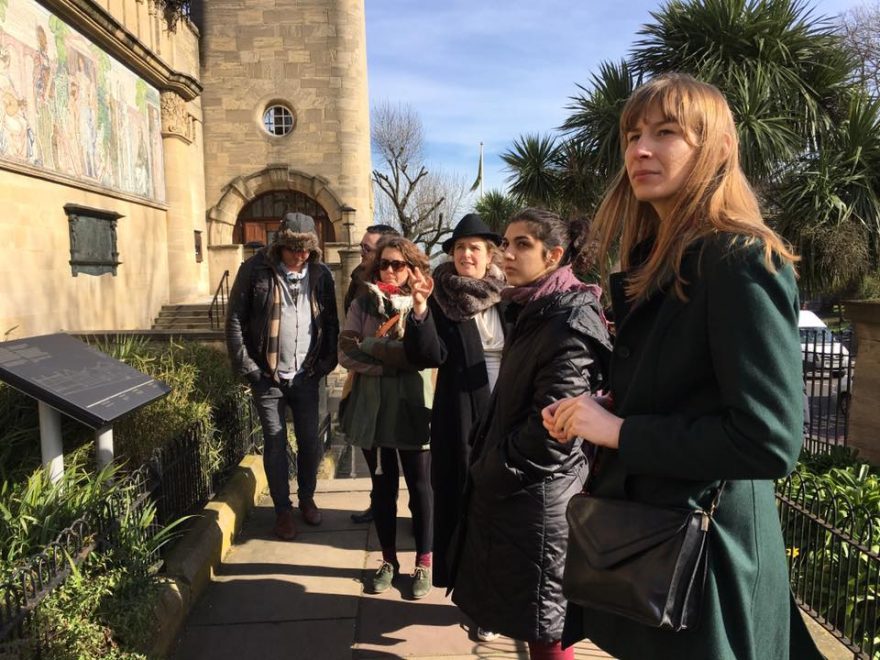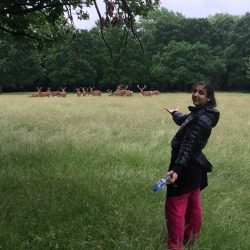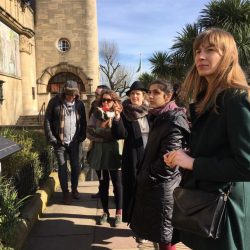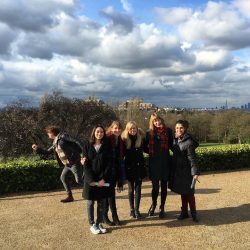Have you ever wished to undergo the fastest possible evolution during your university years? Do you agree that “It does not matter how slowly you go as long as you do not stop” learning? I personally do and that motivated me to take part in the Erasmus Study Mobility program and spend the spring semester of 2016 in the History of Art department of Kingston University in London.
This time abroad proved to be a very transformative period for me, especially because of the challenging nature of the courses that I was taking. One thing that I really enjoyed, and would love to see happening more here in UNIC too, was how the different departments, i.e. Art and History of Art, Architecture, Design and Film collaborate between them and inform each other on various items; e.g we once had a guest lecturer from the Modern Interiors Research Centre of Kingston University, which is recognized around the world for being dedicated to the study of interiors and their contents. Therefore, the lectures were extremely interesting yet seemingly a bit all over the place, which led me to the realization that it is actually this interdisciplinary type of fields of study that characterizes the way we study Fine Arts nowadays, i.e. the incorporation of research in practice and vice versa.
Once I got going through the semester, I befriended some really interesting people who involved me in some extracurricular activities, like a performance art workshop, which allowed me to take a break from the non-stop reading and lectures. But time flies and it was already the end of the semester and I was going to be assessed in the form of academic essays in which I had very little experience prior to the Erasmus. What made time management an even more essential skill to acquire was the fact that the tutorials were just a week before the final submission of the papers, meaning that the time left to implement the teachers’ feedback was limited – talk about being thrown in at the deep end!
There was only one tutorial and it was towards the end of the semester, it felt like my contact with the lecturers over there was a little unstructured even though their comments were indeed constructive. Now that I have returned to UNIC and started my final year of studies, I am able to compare the different levels of relationship between student and lecturer. Here I am offered a lot more attention from my lecturers through multiple tutorial sessions. Well, at least it feels that way because I was exposed to so much new information abroad, I can now process and absorb information a lot more patiently here.
I think that I can now focus completely on my last year at UNIC by exercising my newly acquired independent learning skills, researching methodologically and reaching out for resources. My Erasmus experience has also inspired me to start making future plans; I felt like I could see myself living and working for a longer period of time in London, because there you can find young professionals with a broader understanding of art. I’m looking forward to applying for the Erasmus Traineeship program once I graduate, and I would like to encourage everyone to take advantage of this remarkable opportunity during their studies.
- Richmond Park
- Horniman museum 1
- Horniman museum 2
Polymnia Tsinti





